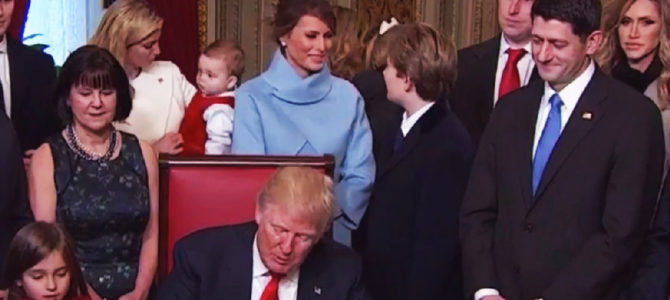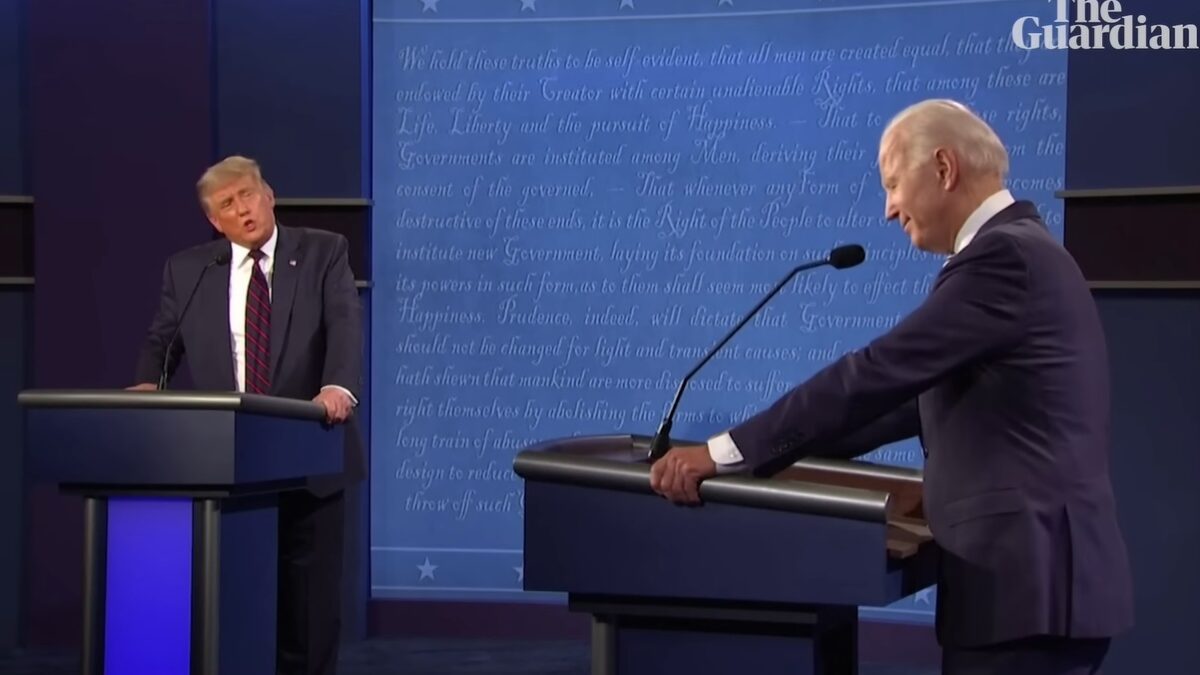
Following last week’s developments in the ongoing saga over Obamacare’s cost-sharing reduction (CSR) payments, two things seem clear. First, President Trump won’t stop making these payments to insurers, designed to reimburse them for providing reduced deductibles and copayments to low-income individuals. If Trump’s administration continued to pay CSRs to insurers mere weeks after the Obamacare “repeal-and-replace” effort collapsed on the Senate floor, it should be fairly obvious that this president won’t cut off the payments.
Second, notwithstanding the above, Trump won’t stop threatening to halt these payments any time soon. Seeing himself as a negotiator, Trump won’t cede any leverage by committing to make future payments, trying to keep insurance companies and Democrats in suspense and extract concessions from each. He has received no concessions from Democrats, and he likely has no intentions of ever stopping the payments, but will continue the yo-yo approach for as long as he thinks it effective—in other words, until the policy community fully sees it as the empty threat that it is.
The combination of these occurrences has created the worst of all possible worlds for the president, his administration, and Republicans. Conservatives can, and should, criticize Trump for continuing to violate the Constitution in making the payments. But liberals will also criticize Trump for violating the Constitution only on a piecemeal, month-by-month basis, claiming that the threat to cut off the unconstitutional payments “sabotages” Obamacare.
President Trump Is Savaging the Constitution
From a constitutional perspective, Trump’s approach to CSRs undermines the rule of law. The president referred to the payments in a May interview with The Economist, stating that “If I ever stop wanting to pay the subsidies, which I will [sic].”
But as any conservative will explain (and this space previously outlined), the president cannot stop making any payments unilaterally. The Supreme Court ruled unanimously in Train v. City of New York that if a law makes a constitutional appropriation, the president cannot refuse to spend the money. He must make the appropriation. Conversely, if the law lacks an appropriation, the president cannot spend money—that prerogative lies with Congress, as per Article I, Section 9, Clause 7 of the Constitution.
Judge Rosemary Collyer ruled last May that Obamacare lacks an appropriation for the cost-sharing reduction payments. If the president agrees, he should stop the payments immediately. If the president disagrees, he should continue the Obama administration’s appeal of that ruling, and commit to making payments unless and until the Supreme Court orders him to stop. Instead, the president has treated the payments—and thus the Constitution—as his personal plaything, which he can obey or disregard on his whim.
This Policy ‘Uncertainty’ Has Consequences
From a policy perspective, the president’s dithering—and the continued threats that he has yet to carry through on (and likely never will)—are having an impact. For years, insurers—wrongly—ignored the threat that CSR payments could disappear, even as some individuals publicly warned them of the risk.
Having under-estimated their risk before this year, many insurers have over-estimated their risk now. Carriers have threatened higher premium increases, or reduction in service areas, because they finally recognize the inherent uncertainty around CSR payments lacking an explicit appropriation in statute.
Insurers’ cries of “uncertainty” have joined chorus with liberals’ claims of “sabotage” against the Trump administration. The same liberal groups and advocates who failed to recognize the uncertainty last year—because higher premiums for 2017 would have hurt Hillary Clinton and Democrats during last fall’s elections—now almost gleefully embrace the concept, believing it can benefit them politically.
Therein lies the full scope of the political danger for Trump and Republicans. It seems obvious that Trump will continue to make the payments to insurers. But it seems equally obvious that Trump enjoys keeping insurers on the proverbial short leash, and won’t give them the “certainty” over the payments that they desire. The end result: An administration that receives political blame from the Right for making unconstitutional payments, and from the Left for “uncertainty”-related premium increases, because Trump has not confirmed those unconstitutional payments will continue.
Rule of Law, Not of Men
In many respects, Trump has provided a perfect illustration of the problems inherent in creating a government based on men and not laws. When President Obama decided to violate the Constitution by making CSR payments without an appropriation, he created a scenario whereby any future president could do exactly what Trump appears to relish: Hold the flow of funds as a political cudgel in an attempt to bend people to his desires.
But in an ironic twist, the political benefit from creating this unilateral policy could accrue to Democrats, if Republicans receive fallout from higher premiums in 2018. Perhaps that outcome could persuade both parties to abandon the executive unilateralism that has become far too common in recent administrations. Restoring the rule of law seems like such a simple, yet novel, concept that some enterprising politicians in Washington might want to try it.









